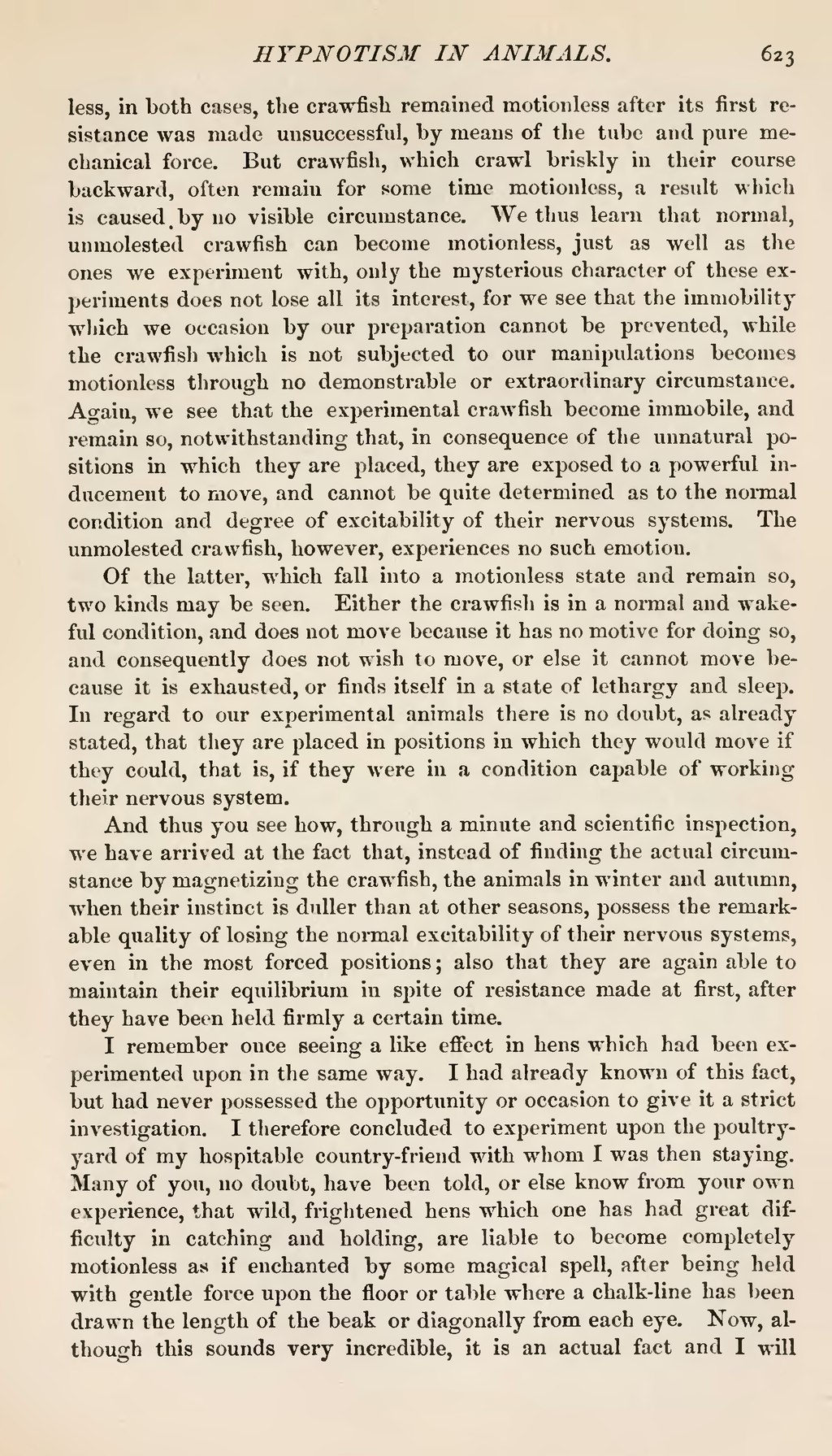less, in both cases, the crawfish remained motionless after its first resistance was made unsuccessful, by means of the tube and pure mechanical force. But crawfish, which crawl briskly in their course backward, often remain for some time motionless, a result which is caused .by no visible circumstance. We thus learn that normal, unmolested crawfish can become motionless, just as well as the ones we experiment with, only the mysterious character of these experiments does not lose all its interest, for we see that the immobility which we occasion by our preparation cannot be prevented, while the crawfish which is not subjected to our manipulations becomes motionless through no demonstrable or extraordinary circumstance. Again, we see that the experimental crawfish become immobile, and remain so, notwithstanding that, in consequence of the unnatural positions in which they are placed, they are exposed to a powerful inducement to move, and cannot be quite determined as to the normal condition and degree of excitability of their nervous systems. The unmolested crawfish, however, experiences no such emotion.
Of the latter, which fall into a motionless state and remain so, two kinds may be seen. Either the crawfish is in a normal and wakeful condition, and does not move because it has no motive for doing so, and consequently does not wish to move, or else it cannot move because it is exhausted, or finds itself in a state of lethargy and sleep. In regard to our experimental animals there is no doubt, as already stated, that they are placed in positions in which they would move if they could, that is, if they were in a condition capable of working their nervous system.
And thus you see how, through a minute and scientific inspection, we have arrived at the fact that, instead of finding the actual circumstance by magnetizing the crawfish, the animals in winter and autumn, when their instinct is duller than at other seasons, possess the remarkable quality of losing the normal excitability of their nervous systems, even in the most forced positions; also that they are again able to maintain their equilibrium in spite of resistance made at first, after they have been held firmly a certain time.
I remember once seeing a like effect in hens which had been experimented upon in the same way. I had already known of this fact, but had never possessed the opportunity or occasion to give it a strict investigation. I therefore concluded to experiment upon the poultry-yard of my hospitable country-friend with whom I was then staying. Many of you, no doubt, have been told, or else know from your own experience, that wild, frightened hens which one has had great difficulty in catching and holding, are liable to become completely motionless as if enchanted by some magical spell, after being held with gentle force upon the floor or table where a chalk-line has been drawn the length of the beak or diagonally from each eye. Now, although this sounds very incredible, it is an actual fact and I will
